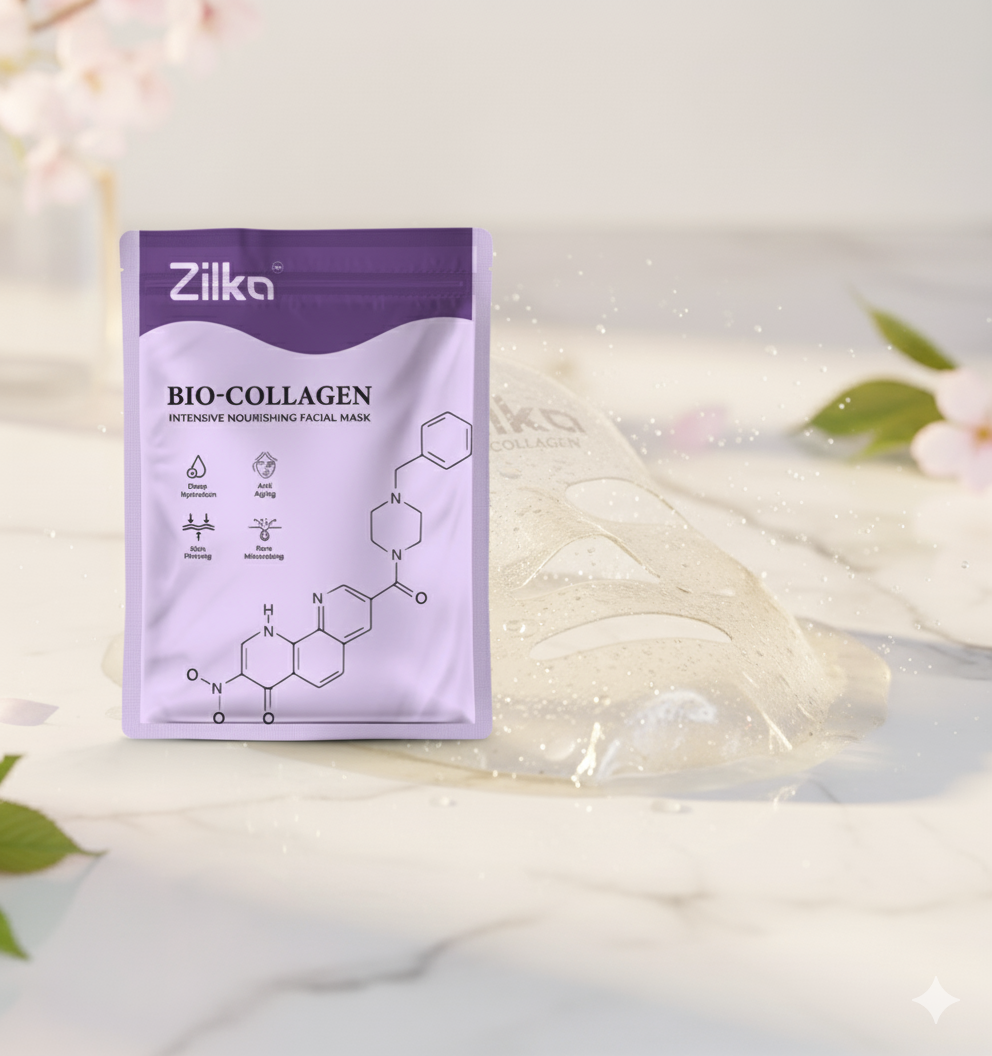
Potential Collagen Side Effects: What You Need to Know Before You Start
Introduction
Collagen supplements have become a wellness phenomenon, praised for their ability to enhance skin, support joints, and promote overall vitality. With an ever-growing number of people incorporating collagen into their daily routines, it's easy to get swept up in the excitement. But as with any supplement, it's crucial to be well-informed before you start. While collagen is generally considered safe for most people, there are some potential collagen side effects and considerations to be aware of. This article will provide a balanced look at the other side of the collagen story, helping you make a safe and informed decision about whether this popular supplement is right for you.
Is Collagen Safe?
For the vast majority of people, taking a collagen supplement is perfectly safe and is not associated with any major adverse effects. Collagen is, after all, a protein that is naturally found in our bodies. However, "natural" doesn't always mean "without side effects."
The potential side effects of collagen are generally mild and are often related to the source of the collagen or the other ingredients in the supplement.
Potential Side Effects and How to Mitigate Them
1. Digestive Upset
One of the most commonly reported side effects of collagen supplements is digestive discomfort. This can include feelings of:
-
Bloating and Fullness: Some people find that collagen supplements make them feel overly full or bloated.
-
Heartburn: This may be due to the specific amino acid profile of collagen.
-
Constipation or Diarrhea: As with any new supplement, your digestive system may need some time to adjust.
How to Mitigate:
-
Start with a Low Dose: If you're new to collagen, start with a smaller dose (e.g., 5 grams) and gradually work your way up to the full recommended serving.
-
Take it with Food: Taking your collagen supplement with a meal can help to buffer its effects on your stomach.
-
Stay Hydrated: Drinking plenty of water throughout the day can help to prevent constipation.
-
Choose a High-Quality Product: Some lower-quality collagen supplements may contain additives or fillers that can contribute to digestive issues. Opt for a pure, hydrolyzed collagen powder.
2. Allergic Reactions
While rare, it is possible to have an allergic reaction to a collagen supplement. This is more likely to occur if you have a known allergy to the source of the collagen.
-
Fish Allergy: If you have a fish or shellfish allergy, you should avoid marine collagen.
-
Beef Allergy: While less common, some people are allergic to beef, in which case they should avoid bovine collagen.
-
Egg Allergy: Some collagen supplements may be sourced from eggs or processed in facilities that also handle eggs.
Symptoms of an allergic reaction can include:
-
Itchy skin, hives, or a rash
-
Swelling of the face, lips, or tongue
-
Difficulty breathing
-
Dizziness or lightheadedness
How to Mitigate:
-
Read the Label Carefully: Always check the source of the collagen and the allergen information on the label.
-
Patch Test: If you're concerned about a skin reaction, you can do a patch test by applying a small amount of the supplement (mixed with water) to a small area of your skin.
-
If you experience any symptoms of an allergic reaction, stop taking the supplement immediately and consult with your doctor.
3. Unpleasant Taste
Some people find that collagen supplements have a slightly unpleasant taste or smell. This is more common with marine collagen, which can sometimes have a "fishy" aftertaste.
How to Mitigate:
-
Mix it with a Flavored Drink: The taste of collagen powder can be easily masked by mixing it into your coffee, a smoothie, or a flavored beverage.
-
Choose a Flavored Product: Many brands now offer flavored collagen supplements. Just be sure to check the ingredients for added sugars or artificial sweeteners.
-
Opt for Capsules: If you're particularly sensitive to the taste, collagen capsules are a great alternative.
4. Concerns About Contaminants
Because collagen is derived from animal sources, there have been some concerns about the potential for contamination with heavy metals or other harmful substances. This is why it's so important to choose a high-quality, reputable brand.
How to Mitigate:
-
Look for Third-Party Testing: Choose a brand that has its products tested by a third-party organization for purity and potency.
-
Choose a Reputable Source: Opt for collagen that is sourced from grass-fed, pasture-raised cows (for bovine collagen) or wild-caught, sustainably sourced fish (for marine collagen).
5. Interactions with Medications
While there are no known major drug interactions with collagen, it's always a good idea to talk to your doctor before starting any new supplement, especially if you have a pre-existing medical condition or are taking any medications.
A Note on "Oziva Collagen Side Effects"
The search query "Oziva collagen side effects" suggests that some users may have experienced side effects with this specific brand. It's important to remember that individual experiences can vary, and what works for one person may not work for another. If you experience any adverse effects with a particular brand of collagen, it's best to discontinue use and try a different brand or consult with your doctor.
Conclusion
For most people, collagen supplements are a safe and effective way to support their health and wellness goals. The potential collagen side effects are generally mild and can often be avoided by choosing a high-quality product and starting with a low dose.
By being aware of the potential risks and taking the necessary precautions, you can confidently incorporate collagen into your routine and enjoy all the amazing benefits it has to offer. As always, listening to your body is key. If something doesn't feel right, don't hesitate to stop taking the supplement and consult with a healthcare professional.

